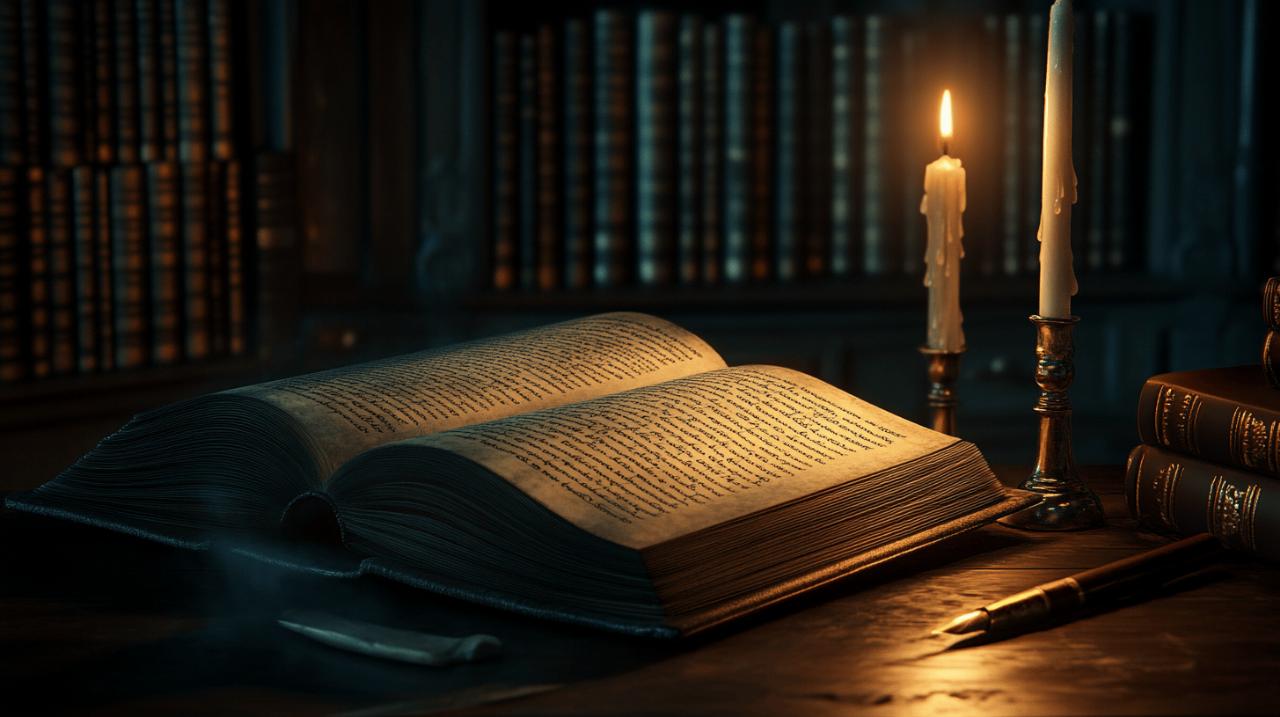February 2025 offers fantasy readers an exceptional array of compelling new releases that showcase the genre's continuous evolution and remarkable diversity. From intricate world-building that rivals the depth of historical epics to narratives that seamlessly blend science fiction with traditional fantasy, this month's selection demonstrates why the speculative fiction community continues to thrive. Whether you're drawn to cosy fantasy that offers gentle escapism or dark fantasy that challenges your expectations, the releases arriving this month promise to satisfy every imaginable taste while introducing fresh voices that deserve your attention.
What Makes a Fantasy Novel Brilliant in 2025?
The defining characteristics of outstanding fantasy fiction have shifted considerably over recent years, reflecting broader changes in reader expectations and storytelling ambitions. Modern audiences demand more than simple escapism; they seek narratives that challenge conventions whilst maintaining the immersive qualities that make fantasy such a beloved genre. Contemporary authors increasingly incorporate marginalised voices and diverse perspectives, enriching the tapestry of speculative fiction with experiences that previously remained underexplored. The emphasis on queer representation and BIPOC authors has transformed the landscape, ensuring that fantasy no longer relies solely on Western medieval tropes but draws from a wealth of cultural traditions and storytelling approaches.
World-building that transports you completely
Exceptional world-building remains the cornerstone of memorable fantasy fiction, separating competent novels from truly transformative reading experiences. Authors such as Jean-Philippe Jaworski demonstrate how meticulous attention to societal structures, historical depth, and geographical detail can create settings that feel lived-in rather than merely invented. The most successful fantasy worlds possess internal consistency and logical progression, allowing readers to suspend disbelief completely whilst exploring realms that exist nowhere else. Maps, histories, and cultural nuances contribute to this sense of authenticity, transforming abstract concepts into tangible places that readers genuinely miss after finishing the final page. The best fantasy authors understand that world-building serves the narrative rather than overwhelming it, providing context that enriches character development and plot progression without descending into excessive exposition.
Storytelling that keeps you up past midnight
Compelling narrative structure distinguishes genuinely gripping fantasy from merely adequate genre fiction, and authors who master pacing create books that readers physically struggle to put down. Dan Simmons' Hyperion exemplifies this quality perfectly, combining sprawling scope with intimate character moments that drive the story forward relentlessly. The novel consistently appears on best-of lists precisely because it balances multiple narrative threads whilst maintaining momentum throughout its considerable length. Modern fantasy readers expect sophisticated plotting that respects their intelligence, avoiding predictable tropes whilst delivering satisfying emotional payoffs. The most successful releases employ techniques borrowed from literary fiction, thriller writing, and even horror, creating hybrid narratives that transcend simple genre classification whilst remaining fundamentally rooted in fantasy's imaginative possibilities.
How we selected these fantasy gems for february
Curating a definitive list of must-read fantasy releases requires rigorous methodology that balances commercial success with genuine literary merit. Simply following sales figures provides incomplete information, as marketing budgets often determine visibility rather than quality. Conversely, focusing exclusively on critical acclaim risks overlooking books that resonate powerfully with general readers despite lacking establishment endorsement. Our approach combines multiple data points to identify releases that demonstrate both artistic achievement and broad appeal, ensuring recommendations that satisfy diverse reading preferences whilst maintaining consistent standards.
Our review methodology: sales, ratings, and value
Our selection process examines sales performance, user reviews across multiple platforms, and overall value proposition to identify books that deliver substance alongside style. Commercial success indicates broad appeal, suggesting that a title has connected with substantial numbers of readers beyond niche audiences. User reviews provide invaluable insight into how books perform in practice rather than theory, revealing whether ambitious concepts translate into satisfying reading experiences. Value considerations extend beyond simple price comparisons to encompass factors such as rereadability, thematic depth, and lasting impact on readers' perspectives. We prioritise books that offer genuine rewards for the investment of time and money, avoiding hollow spectacle that impresses momentarily before fading from memory.
Why these authors consistently deliver quality fiction
Certain names appear repeatedly in discussions of exceptional fantasy because these writers demonstrate consistent excellence across multiple releases. Stephen King frequently blurs genre boundaries, incorporating fantasy elements into narratives that also function as horror, thriller, or literary fiction. Neil Gaiman's work represents pure genius in its ability to blend mythology, contemporary settings, and philosophical depth into stories that appeal across age groups and reading preferences. Authors such as Seanan McGuire, T. Kingfisher, and Nghi Vo have earned devoted followings through their distinctive voices and willingness to explore unconventional narrative territory. RF Kuang and Naomi Novik exemplify how fantasy can engage with serious themes whilst maintaining the genre's fundamental sense of wonder, whilst Martha Wells demonstrates that character-driven storytelling need not sacrifice world-building ambition.
Genre-blending brilliance: when fantasy meets science fiction
 The boundaries between fantasy and science fiction have become increasingly porous, with many of the most exciting contemporary releases drawing freely from both traditions. This cross-pollination enriches both genres, allowing authors to explore themes and narrative possibilities that neither category could address in isolation. Science fiction's emphasis on technological speculation and social extrapolation combines powerfully with fantasy's mythic resonance and magical thinking, creating hybrid narratives that challenge conventional categorisation whilst expanding the possibilities of speculative fiction.
The boundaries between fantasy and science fiction have become increasingly porous, with many of the most exciting contemporary releases drawing freely from both traditions. This cross-pollination enriches both genres, allowing authors to explore themes and narrative possibilities that neither category could address in isolation. Science fiction's emphasis on technological speculation and social extrapolation combines powerfully with fantasy's mythic resonance and magical thinking, creating hybrid narratives that challenge conventional categorisation whilst expanding the possibilities of speculative fiction.
Masters who blur the lines between worlds
Arthur Clarke explored themes that functioned equally well within fantasy or science fiction frameworks, demonstrating how sufficiently advanced technology becomes indistinguishable from magic. Kim Stanley Robinson weaves political and scientific elements into narratives that often incorporate fantastical premises, creating works that resist simple classification. Contemporary authors continue this tradition, recognising that rigid genre boundaries serve marketing departments more than creative ambitions. The most interesting releases of February 2025 include numerous examples of this boundary-crossing approach, from League of Legends tie-ins that blend fantasy gaming worlds with character-driven drama to Star Wars novels that incorporate mythic structures into space opera frameworks. The Halo franchise demonstrates how science fiction universes can incorporate fantasy storytelling techniques, whilst anthology collections showcase diverse approaches to Afrofuturist narratives that merge speculative futures with cultural mythology.
Political and Scientific Elements in Modern Fantasy
Modern fantasy increasingly incorporates sophisticated political analysis and scientific thinking, reflecting broader cultural conversations whilst maintaining genre appeal. Authors recognise that contemporary readers expect narratives that engage with complexity rather than offering simplistic moral frameworks. Political intrigue, economic systems, and technological development now feature prominently in fantasy worlds that previous generations might have populated solely with magic and monsters. This evolution doesn't diminish fantasy's imaginative power but rather enhances it, creating narratives that resonate with readers' lived experiences whilst transporting them to impossible places. The integration of scientific principles into magical systems demonstrates how fantasy can maintain internal consistency whilst pushing creative boundaries.
Where to purchase your next favourite fantasy read
Accessing these exceptional releases requires navigating an increasingly complex marketplace that offers numerous purchasing options with distinct advantages and limitations. Digital retailers provide convenience and instant gratification, whilst independent bookshops offer curated selections and community connections that enrich the reading experience. Understanding the options available helps readers make informed decisions that align with their preferences and values.
Hardback versus paperback: what's right for you?
The choice between hardback and paperback editions involves considerations beyond simple price differences, encompassing durability, aesthetic appeal, and practical reading comfort. Hardbacks offer superior longevity and often feature enhanced production values including superior paper stock, decorative elements, and more legible typography. Collectors and readers who anticipate returning to books repeatedly often prefer hardback editions despite higher initial costs. Paperbacks provide portability and affordability, making them ideal for readers who prioritise convenience or budget constraints. Special editions celebrating anniversaries, such as the thirtieth anniversary release of Patricia McKillip's work or the twentieth anniversary reissues of John Scalzi's Old Man's War series, offer collectible value that justifies premium pricing for dedicated fans.
Your february 2025 fantasy reading checklist
This month's essential releases span multiple subgenres and styles, ensuring that every fantasy reader will discover something compelling. Emily Wilde's Compendium of Lost Tales continues a beloved series that combines academic fantasy with cosy charm, whilst darker offerings explore grittier territory for readers seeking more challenging narratives. Young adult fantasy releases demonstrate the category's continued vitality, introducing new readers to the genre whilst offering sophisticated storytelling that appeals across age groups. Epic fantasy continues to evolve, with authors pushing the boundaries of scale and ambition whilst romantic fantasy blends genre conventions to create narratives that satisfy multiple reader appetites simultaneously. Keep an eye on johntranter.com throughout February 2025 for comprehensive coverage of these releases, providing the chief guide for fantasy fiction enthusiasts seeking their next unforgettable read. These books offer experiences far superior to games, delivering rewards that justify every moment invested in their pages. You absolutely won't regret adding these carefully selected titles to your collection.





